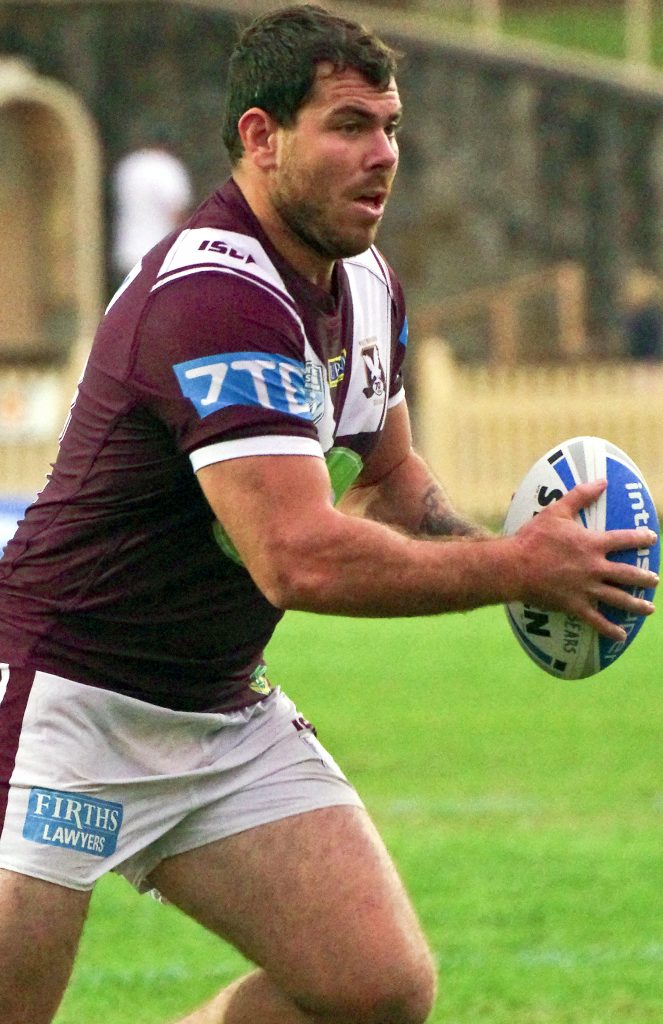Reepy_AU/Creative Commons
Most people find the notion of changing jobs hard enough, but have you ever considered what it's like for athletes to switch clubs?
Starting a new job is hard enough when there’s no expectation of rah-rah company loyalty. Imagine having to assume a new role when everything’s riding on your ability to focus on nothing but victory.
That’s the situation for athletes headhunted by another club, or amateur sportspeople moving to a new area. You find yourself in an alien environment, surrounded by former rivals and expected to go in hard, early, and often against your former allies.
“When you go to a new club, you’ve got to go back to the bottom,” says Josh Starling, who played first-grade rugby league for the South Sydney Rabbitohs, Manly Warringah Sea Eagles, and Newcastle Knights. “You’ve got to prove yourself to a new bunch of people.
“When you go to a new club, you’ve got to go back to the bottom.”
“You might be the best player, coming from somewhere else, but you’ve got to earn the respect of the players, and people around you, at the same time. I don’t think you can go somewhere and demand that it should be like you’re used to, or like ‘I’m number one so you should be giving me this and that.’”
You might think training regimens have been optimised across a given sport, making things fairly universal, but it turns out club culture is more than just a uniform and logo.
“I’d had a year of Queensland Cup for Tweed Heads, and Tweed was the bottom end money-wise – we didn’t have a big gym or anything,” adds Starling. “We’d pride ourselves on working hard on the field and being good footy players, more than anything. Then, when I transitioned to Souths and Michael Maguire came over from Melbourne, that was a big change for me.

Josh Starling with the Manly Sea Eagles. Photo by NAPARAZZI/Creative Commons.
“He wanted you to train six, seven days a week, you had to eat right, you had to be a certain weight and certain skin folds and fitness level, you’d have to lift a certain amount of weights and things like that.
“So that was a culture shock, but obviously it’s good to get you in the habit of being a professional athlete. But when I went over to Manly it was quite the opposite. They went, ‘Righto, we train Monday to Friday in pre-season. Friday afternoon and the weekend off. All we ask is you give it everything you’ve got on the field.’ They really couldn’t care about how much you lifted in the gym.”
But the main game is on the field, and we all want to know what it’s like to tackle the colours you once proudly wore. Josh has fond memories of his first clash against the Rabbitohs.
“It was good, in a way,” he says. “We were lucky enough to end up winning, in a close game, which is always good. But it’s different when you’re a player. A lot of fans and media personalities say this and that about blokes leaving clubs, that you left on bad terms.
“But players know what footy is like – it’s not forever, and you’ve got to go make the money where you can… Not that I ever made anything good, but I needed an opportunity because I wanted to play. At Souths I was stuck behind five international forwards. I was never really going to get a chance until they got injured. Whereas I went over to Manly and they were really struggling for front rowers, so I knew I’d have a chance to prove myself straightaway.”
Most of us don’t have to deal with a rabid fanbase when changing jobs – something that’s become worse now armchair coaches can deliver a spray via social media.
“There’s always a few dickheads who want to take it too far,” says Josh. “When I went to Manly, I’d only played a handful of games for Souths, over a couple of seasons. People were saying to me I’m diving somewhere else for money, and I was like, ‘What the hell are you talking about? I don’t make any money, for one. And two, why would I want to stay somewhere where I’m not going to get a run?’ I want to play NRL, I don’t want to play in reserve grade for 10 years.”
“But players know what footy is like – it’s not forever, and you’ve got to go make the money where you can…”
It’s not just professional athletes who feel the dislocation of a new club. Pennant player and former selector Ken Sproat moved from Torquay Bowling Club to Fitzroy-Victoria last year, and found his first weeks very tough.
“My new club is a corporate entity, so the smallest things have to go through the club manager,” he explains. “The upside is there’s very little thankless volunteer work required, and a lot of things are free, like uniforms, even for the lowest player.
“But it’s also the only club I know where members don’t have access to the kitchen. If I want to eat my John West tuna for lunch, I need to ask the bar staff to find me a fork.”
It’s not just the amenities or coaching differences in these cases – there’s also the social side.
“I had a persona built up at Torquay,” says Ken. “They knew me as Brussell, the guy who loves to dance, who gets on the microphone every Saturday night and goes through the bowls results. When people first meet me they think I’m reserved, which happened at Fitzroy-Victoria.
“I now have many friends at the club, young and old. They call me Tent or Teepee for unwholesome reasons, and put their hands in the shape of a tent when I do something good on the green.”







































